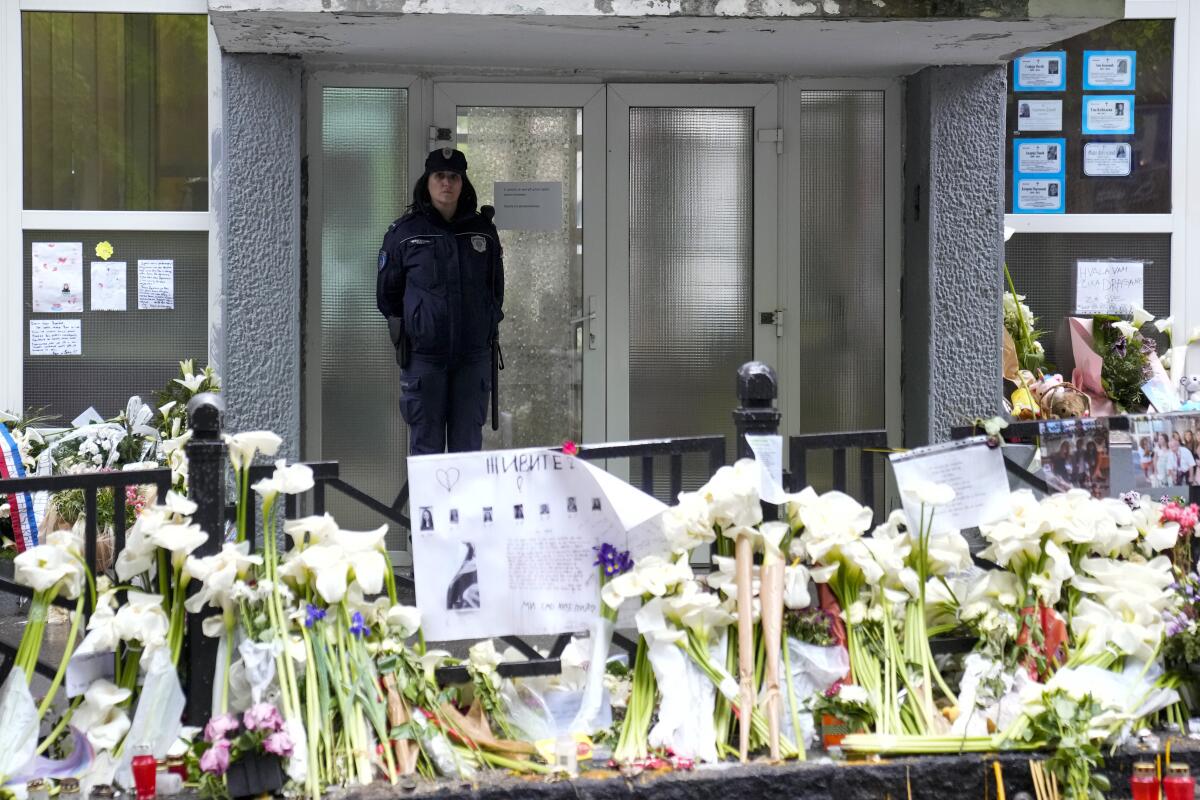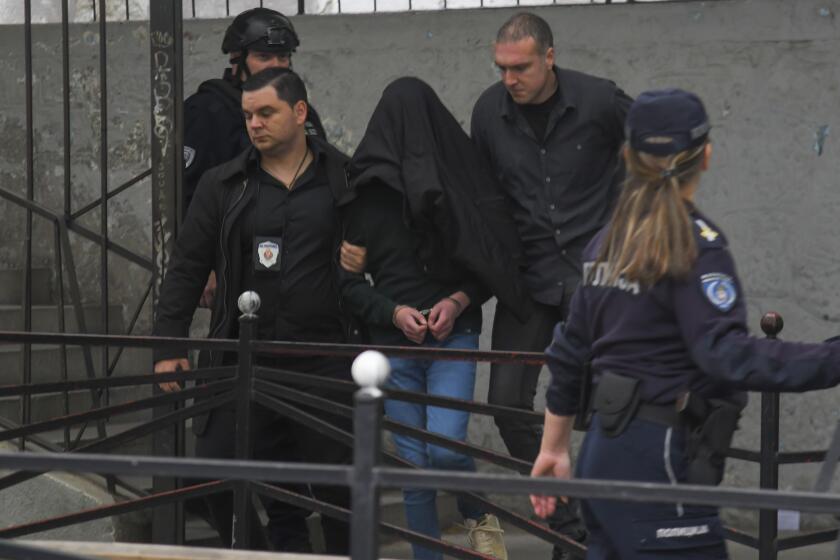After two mass shootings, Serbians hand over thousands of weapons in gun amnesty

- Share via
BELGRADE, Serbia — Serbians have handed in nearly 6,000 unregistered weapons in the first three days of a monthlong amnesty that is part of a crackdown on guns after two mass shootings last week, police said Thursday.
Police also have received nearly 300,000 rounds of ammunition and about 470 explosive devices, the Interior Ministry said on Instagram.
The effort to rid Serbia of excessive guns was launched after 17 people were killed and 21 were wounded in the two mass shootings, many of them children. One of the shootings took place in a school, for the first time ever in Serbia.
Authorities have told citizens to give up unregistered weapons by June 8 or face prison. Other anti-gun measures include a ban on new licenses, stricter controls on gun owners and shooting ranges, and tougher punishment for the illegal possession of weapons.
The school shooter was a 13-year-old boy who used his father’s gun to open fire on his fellow students at an elementary school in central Belgrade on May 3, police said. A day later, a 20-year-old man opened fire with an automatic weapon in a rural area south of Belgrade, the capital, authorities said.
Serbian police say a 13-year-old used his father’s gun to shoot and kill a guard and eight fellow students, then called police and was arrested in a schoolyard.
Serbia is estimated to be among the top countries in Europe in gun possession per capita, partly because of the wars in the 1990s. On Wednesday, police arrested the father of the school suspect on suspicion of illegal possession of weapons.
The two shootings have sparked calls for changes and more tolerance in society.
Thousands have marched in opposition-led protests in Belgrade and other towns, demanding resignations of populist government ministers as well as a ban on television stations that air violent content and host war criminals.
President Aleksandar Vucic has accused opposition parties of using the tragedy for political ends.
Vucic, a former ultranationalist who now says he wants to take Serbia into the European Union, has faced accusations of promoting hate speech against opponents, curbing free speech with a tight grip over mainstream media and taking control of all state institutions. He denies the allegations.
More to Read
Sign up for Essential California
The most important California stories and recommendations in your inbox every morning.
You may occasionally receive promotional content from the Los Angeles Times.














